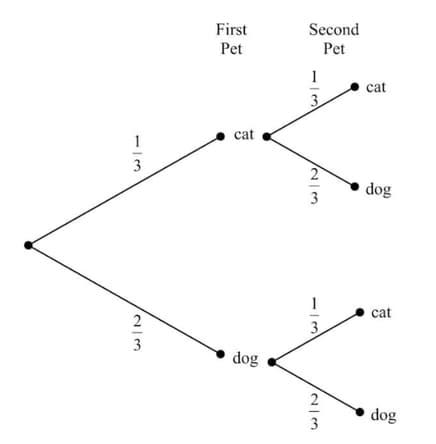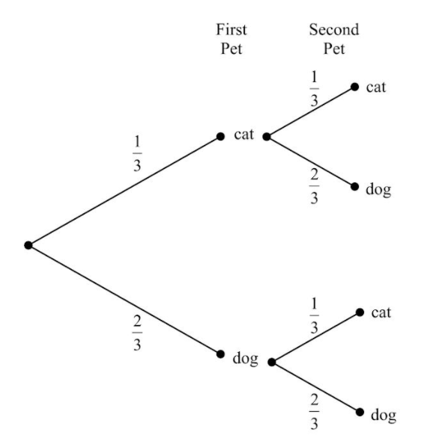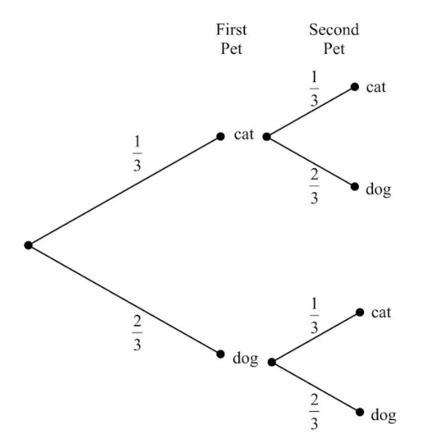Karen Morrison and Nick Hamshaw Solutions for Exercise 2: Exercise 24.2
Karen Morrison Mathematics Solutions for Exercise - Karen Morrison and Nick Hamshaw Solutions for Exercise 2: Exercise 24.2
Attempt the practice questions from Exercise 2: Exercise 24.2 with hints and solutions to strengthen your understanding. Cambridge IGCSE® Mathematics Core and Extended Coursebook Second Edition solutions are prepared by Experienced Embibe Experts.
Questions from Karen Morrison and Nick Hamshaw Solutions for Exercise 2: Exercise 24.2 with Hints & Solutions
An unbiased coin is tossed twice. Draw a tree diagram to show the outcomes and use it to find the probability of the two tosses giving the same result.
A bag contain eight blue marbles and two red marbles . Two marbles are drawn at random. The first marble is replaced before the second is drawn.What is the probability of getting two red marbles.
A bag contain eight blue marbles and two red marbles . Two marbles are drawn at random. The first marble is replaced before the second is drawn.What is the probability of getting one red marble and one blue marble. ( Write answer in simplest form.)
A bag contain eight blue marbles and two red marbles . Two marbles are drawn at random. The first marble is replaced before the second is drawn.What is the probability of getting two blue marbles.
A bag contains beads. Five are red and the rest are white. Two beads are drawn at random. The first bead is replaced before the second is drawn.Represent the possible outcomes on a tree diagram. Find both beads are red and both beads are white.
Harold wants to buy two new pets; he will buy them a week apart. He prefers dogs to cats, but only slightly, and decides that so long as he buys them as puppies and/or kittens, it doesn't matter what combination he gets. The tree diagram below represents what combination of two pets he might buy. How many possible combinations of pet could be buy?

Harold wants to buy two new pets; he will buy them a week apart. He prefers dogs to cats, but only slightly, and decides that so long as he buys them as puppies and/or kittens,it doesn't matter what combination he gets. The tree diagram below represents what combination of two pets he might buy. What is the probability that he buys a cat and a dog?

Harold wants to buy two new pets; he will buy them a week apart. He prefers dogs to cats, but only slightly, and decides that so long as he buys them as puppies and/or kittens, it doesn't matter what combination he gets. The tree diagram below represents what combination of two pets he might buy. What is the probability that he buys two cats?

